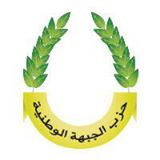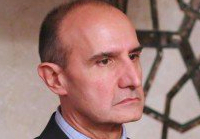By Libya Herald reporters.

Tripoli/Tunis, 20 December 2015:
Support for the Libyan Political Agreement (LPA) and the new Government of National Accord (GNA) . . .[restrict]led by Faiez Serraj, signed in Skhirat Morocco on Thursday, remains mixed. The Libyan Muslim Brotherhood has issued a statement backing it, and its political mentor Ali Salabi, on his Facebook page, has come out broadly in support, calling it a model to end Libya’s divisions and praising the hard work of those who took part in the Libya Dialogue negotiations. He said that with it being internationally recognised it should be able to address the country’s economic, social and educational decline as well as deal with crime and extremism.
Support has also come from numerous local authorities and organsiations. The Tuareg National Movement for the South, for example, said the GNA was the “only way out of the Libyan crisis” and would enable the rebuilding of state institutions and the return of displaced people.
Unsurprisingly, Zintan, from where GNA Presidency Council member Omar Aswad hails, has stated its firm support for the agreement.
On the other side, in something of a serious blow to it, the National Front whose most prominent member was former General National Congress president Mohamed Magarief, has come out against. In a statement, it said that the LPA did not provide a sufficient basis for the consensus that Libya headed to overcome its present divisions and that a number of fundamental issues had not been addressed. It did not state what these were, but security is believed to be one of them.
At the Libya Dialogue gathering in Tunis on Friday 11 December, the NF was one of two parties (the Nation Party of Abdulhakim Belhaj being the other) that opposed any rapid signing of the LPA. The NF’s current leader, former Misrata congressman Mohamed Ali Abdullah, later told the Libya Herald that the party’s reservations were over details which had still not been worked out. These included the names of all nine members of the presidency council; only six were known at the time. The remaining three, though have since been announced.
Among other opposed are the Tripoli Council of Elders. Also in Tripoli, several hundred protestors demonstrated against the agreement in the city’s Martyrs’ Square on Friday and in support of the rival “Libya-Libya Dialogue” now being promoted by GNC and HoR presidents Nuri Abu Sahmain and Ageela Salah Gwaider. The elders’ council, however, is entirely powerless and does what it is told by those in control of the capital while Friday’s demonstrations was widely viewed as having been politically orchestrated. Even so, the Ghwell government and the militias supporting it are seen to still be firmly in charge, and have made it clear they have no intention of relinquishing power or handing the city over to the GNA. [/restrict]










